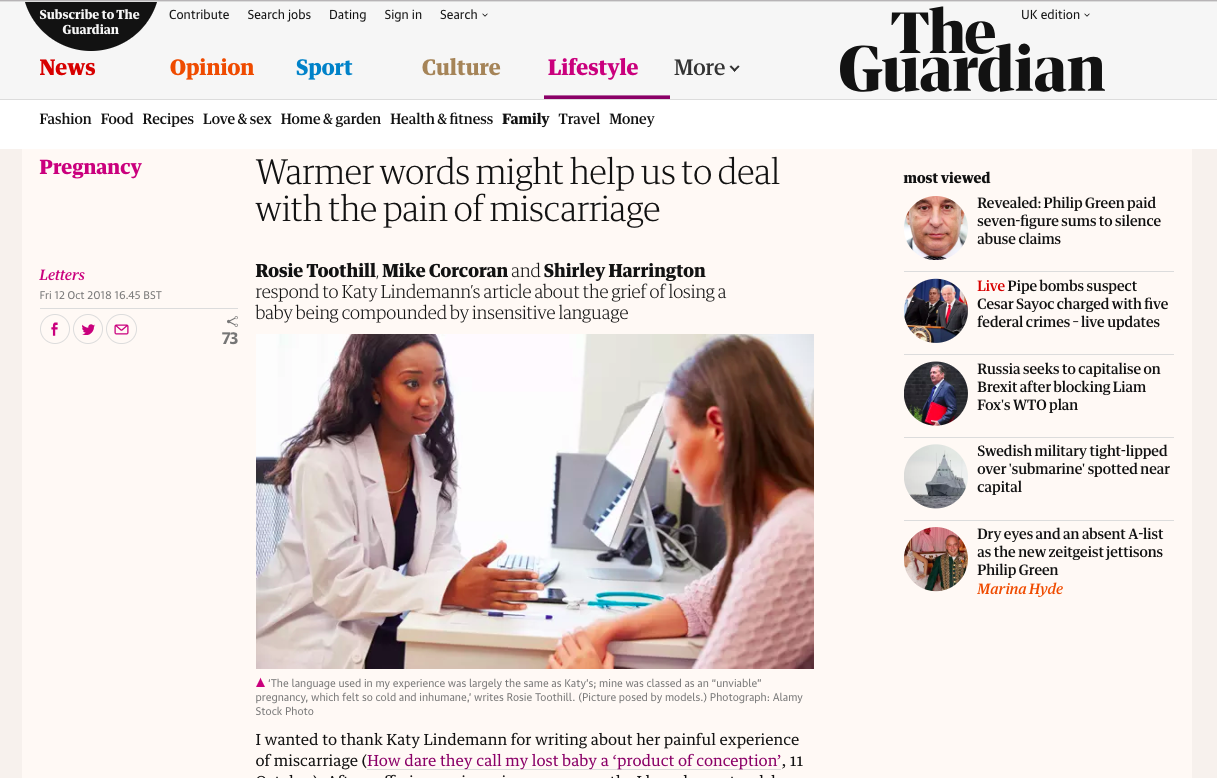Speaking to Helen Williams from the University of Birmingham
Helen is a researcher working with the National Centre for Miscarriage Research , leading a research initiative for Tommy’s dedicated to improving miscarriage support for women, partners and family:
Miscarriage isn’t just a physical experience: it is an emotional event both for mum, her partner and those around them. However, a lot of the care given after a miscarriage only focuses on physical recovery, without providing women with the emotional support they need.
We want to better understand the different feelings and ways of coping women experience after miscarriage, so we can find the best way to help those who have suffered loss. We also want to find out about the experiences of those working to care for couples that have miscarried, as well as how employers respond to miscarriages amongst their employees.
Firstly, we are carrying out a large review of other studies on women’s experiences of early miscarriage. But we want to go further, and ask women themselves. At the moment we are working with nurses and midwives to figure out the best way to sensitively approach women about this difficult topic.
The things we learn from this project will help us in training doctors, nurses and midwives to give women and their partners the care they need following loss, both emotional and physical.
More here: ‘The Lived Experiences of Miscarriage’
The project itself is exploring exactly the issues identified in the article, and I’m so thrilled that Tommy’s funding is going into researching delivering emotional, as well as clinical, care.
Helen said they’re at the very beginning of the project, but that their initial area of focus is going to be on the male experience — because men are so neglected in delivering miscarriage support. Women are more likely to talk about their experience with their friends, but there’s no equivalent forum for men to have a space to be vulnerable and talk about their feelings. The aim is to to formulate or co-design with the participants what a helpful intervention might look like.
I think this is absolutely fantastic, as miscarriage is a bereavement that affects both parents — yet so much of the support is geared around the woman’s needs, with the man’s emotional needs often barely acknowledged.
Helen and I are going to stay in touch, and I look forward to hearing how the research progresses.











